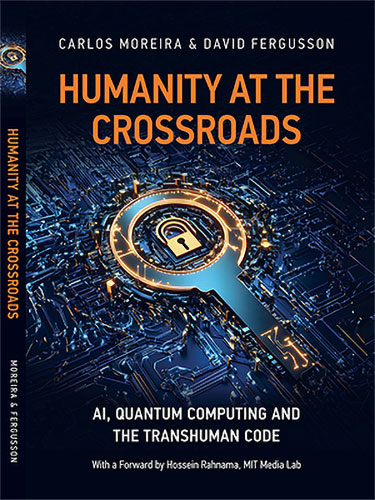Back to: Press News
The End of Hyper-Globalized Technology: The Rise of Digital Sovereignty in the Post-Acceleration Era
April 8, 2025
Carlos Moreira and David Fergusson
Humanity at the Crossroad
Co-authored by Carlos Creus Moreira and David Fergusson, Humanity at the Crossroad delivers a powerful and fluid exploration of the transformative convergence of artificial intelligence (AI) and quantum computing—two technologies that are reshaping the world faster than society can adapt.
START READING NOW
GET FREE EBOOK


But this era of unbounded technological acceleration and global openness is drawing to a close. The ideal of a universally connected web is being replaced by a fragmented digital reality, where national interests override global cooperation. A new tech era is emerging—one in which countries no longer rely solely on open international collaboration to maintain a technological edge, but instead prioritize self-reliance, digital sovereignty, and strategic digital autonomy. In this new paradigm, the web no longer serves as a seamless bridge between civilizations, but as a network of gated communities—connected only when political alignment and shared interests allow.
This shift is not merely a reaction to external threats, but a sober realization that technology has become a strategic asset on par with natural resources or military strength. The pandemic, cyberwarfare, data breaches, and the global chip shortage revealed deep vulnerabilities in overextended and underprotected digital infrastructures. In response, governments have begun to reclaim control—building national data centers, protecting local AI and tech industries, and establishing legal frameworks that limit foreign influence. Major players like China, Russia, the European Union, and the United States are now advancing divergent technological standards and regulatory regimes. The dream of a unified digital civilization is being replaced by a reality of sovereign fragmented intranets and tech blocs.
As we enter this new phase, countries will need to be more sober in their approach to technology. Instead of chasing exponential growth at any cost, they will need to ensure that innovation aligns with their values, protects their citizens, and secures their future. This will require new forms of cooperation—between nations that share democratic values, ethical standards, and mutual trust. It will also require a rethinking of how we define progress, moving from a focus on speed and scale to one of resilience, accountability, and long-term stability with a human center priority.
hashtag#transhumancode